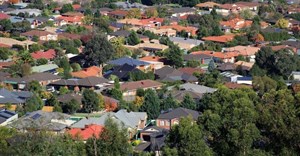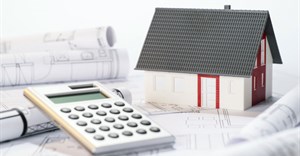
A positive 5% growth in house prices is satisfactory

“Whenever investors have done well with an asset class of any kind there are always groans and resentment when a falling-off in their returns becomes evident. The plain truth, however, is that in the current market a positive 5% growth is indicative of a sector, product or business operating fairly satisfactorily," he says.
"We all acknowledge that house price deflation will occur for at least one year, but this trend has to be seen in relation to other trends, most notably the rise for the first time for a long while in the prices of large homes which once again are in demand, especially in Cape Town and the north coast of KwaZulu-Natal.”
The Absa House Price Indicator shows that the year-on-year rise in the large house price category in November and December last year was 7,7% and 8,1% respectively. “We have not seen price rises of this magnitude in the large house category since the boom times of 2004 to 2007. These price rises indicate that those with wealth do not take a wholly pessimistic view of South Africa’s economic prospects.”
Small home category
Also worth noting is that in the small home category, now severely cut down by the recessionary economic conditions, price rises in 2013 were just under 10% (the highest of any category) and even though now they are showing adverse growth patterns will almost certainly recover by the year-end, despite high bond rejection rates.
“Home owning aspirations here are more widespread than in any other category - again a fact which augers well for the future,” he explains.
The 0,5% increase in the repo rate announced recently by the South African Reserve Bank’s Monetary Policy Committee was expected by almost everyone in the residential real estate sector and was absolutely inevitable.
“With South Africa’s currency now showing an unprecedented weakness and the cost of living rising and with inflation set on an upward trajectory and likely to continue in this way and with so many South African families still apparently unable to keep their spending within a reasonable budget, we can, I believe, predict that by the end of this year not only will the rate have risen by a full 1% or more, but also that the banks are likely to tighten up on their loan criteria."
Government assistance
"The government, in theory, remains committed to the principle of home ownership, but the sad truth is that over 70% of our people will not in the foreseeable future be able to afford their own homes without some form of government assistance. For those who do own properties which they can rent out, the big consolation of the current situation is that under the circumstances their returns will continue to rise and the value of their properties values will continue to increase,” says Smyth.
At current prices South African residential property is still eminently affordable for those who are able to qualify for a bond - and there are still people out there whose earnings and income levels do, in fact, make them acceptable to the banks, but who do not as yet realise this.
“As always, the best advice that conscientious bond originators can give to those dreaming of owning a home someday, but unsure whether they qualify, is to consult with us - especially with those who are capable of steering the applicant towards a position in which he does qualify for a bond. This is sometimes easier to achieve than many people realise,” he concludes.
















![[BizTrends 2016] Growing urbanisation and densification in property market](https://biz-file.com/c/1511/319480-300x156.jpg?2)
